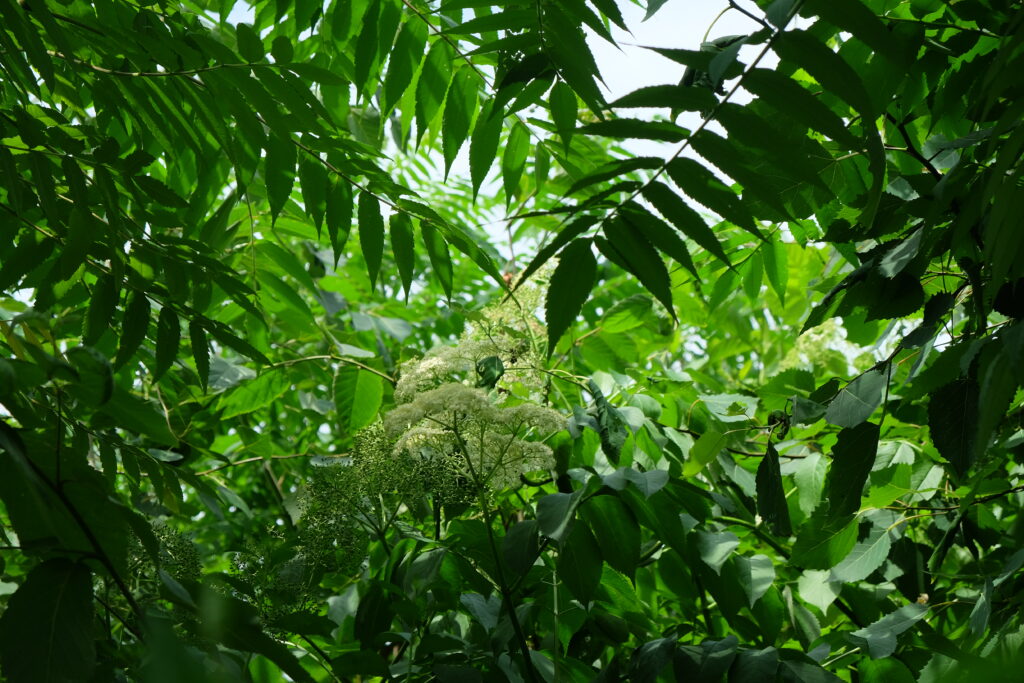
On a beautiful Wednesday afternoon this past June Domini hosted a guided tour at the Miyawaki Forest at Danehy Park, Cambridge, MA. This unique event invited nature enthusiasts and community members to discover the wonders of an ultra-dense, biodiverse pocket forest, showcasing the richness and complexity of natural ecosystems.
The Danehy Miyawaki Forest
The Miyawaki method, developed by Japanese botanist Akira Miyawaki, focuses on intense soil restoration and the dense planting of native species. This approach fosters a rich, layered ecosystem that thrives with minimal maintenance after the initial few years. The success of these forests is seen in places like Los Angeles’s Griffith Park, where a similar project has attracted various wildlife, proving that even small green spaces can significantly impact urban biodiversity.
A Miyawaki Forest is a special type of forest, characterized by its dense planting and high biodiversity, mimicking the intricate layers and species variety of a natural forest. The Danehy Miyawaki Forest, established in 2021, is part of an initiative by Biodiversity for a Livable Climate to transform urban spaces into thriving, green ecosystems, promoting environmental sustainability and enhancing the quality of life for city dwellers.
The forest resides on a reclaimed landfill in Cambridge, which adds a unique element to its story. Despite being less than two years old, the forest has already displayed impressive growth and resilience. Its aspens are growing at twice the expected rate, with fragrant sumac and tulip trees quickly catching up. This vibrant growth can be attributed to the enriched soil and high density of planting, which helps the forest absorb stormwater, suppress weeds, and remain lush even during droughts.
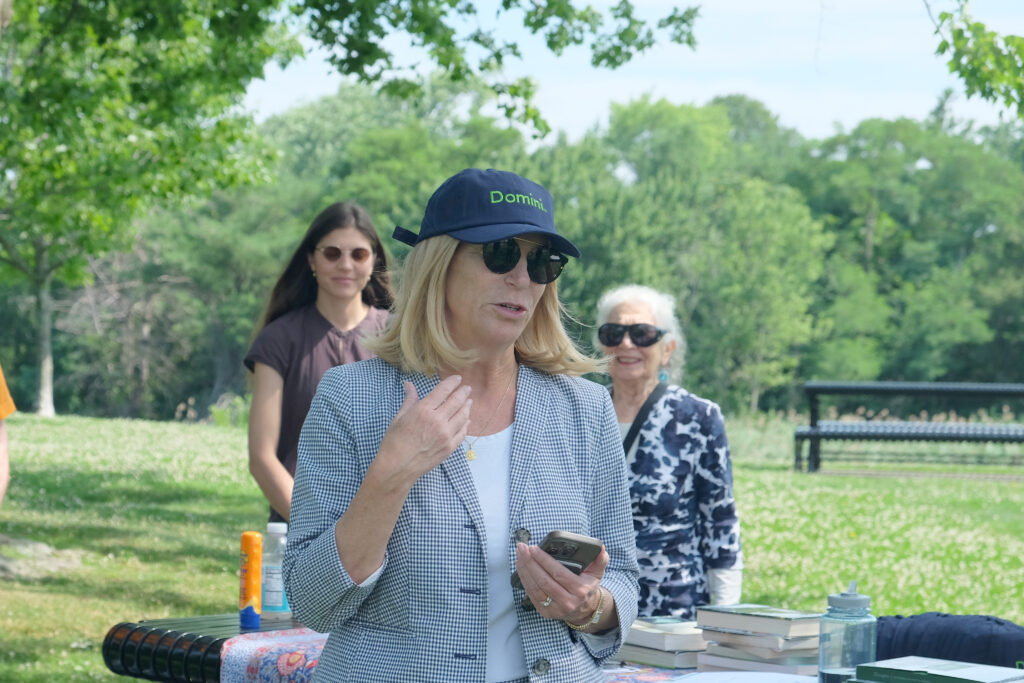
Domini’s Commitment to Nature
Carole Laible, CEO of Domini, kicked off the event with introductory remarks about Domini’s perspective on forest conservation. She emphasized the critical role forests play in our lives, from providing daily products to regulating the climate, and underscored the urgency of addressing deforestation.
Why Focus on Forests?
Forests are a fundamental part of our lives. Imagine the loss of hiking through the green understory or the annual changing of the colors of the leaves every fall. Without forests, we would lose daily products, homes for many people and animals, climate regulation, and the intrinsic value trees bring to all living beings.
Unfortunately, deforestation is a pressing issue. In places like Indonesia, 85% of forest cover has been lost. Globally, every minute sees the destruction of a forest area equivalent to 27 soccer fields. These alarming facts drive Domini’s commitment to finding solutions to deforestation.
Forests play a critical role in climate regulation, absorbing carbon dioxide and cleaning the air. The preservation of forests is vital, as they can combat climate change more effectively than all renewable energy technologies combined. They also support the livelihoods of 300 million people and house 80% of global terrestrial biodiversity. Deforestation is driven by industries producing commodities like palm oil, cattle, soy, and wood pulp. Large corporations are major contributors to this problem, using forest-dependent resources in everyday products.
Domini’s Plan of Action involves harnessing the combined power of stakeholders, from long-term investors to consumers, to drive change. With a history of engaging with companies and policymakers, Domini investors are in a unique position to advocate for forest preservation and to encourage them to reinforce their supply chain initiatives to help end deforestation.

Biodiversity for a Livable Climate
Biodiversity for a Livable Climate’s mission is to expand the climate conversation to include the positive impacts of the biosphere on the climate. They believe that appropriate human efforts to nature can help reverse the effects of global warming. Their program focuses on establishing forests in under-resourced communities. They work with local and Indigenous groups to create tree equity by sowing healthy ecosystems. Through planting, supporting, and educating people on the Miyawaki method, they aim to lead a nature-based climate solution revolution.
Highlights of the Tour
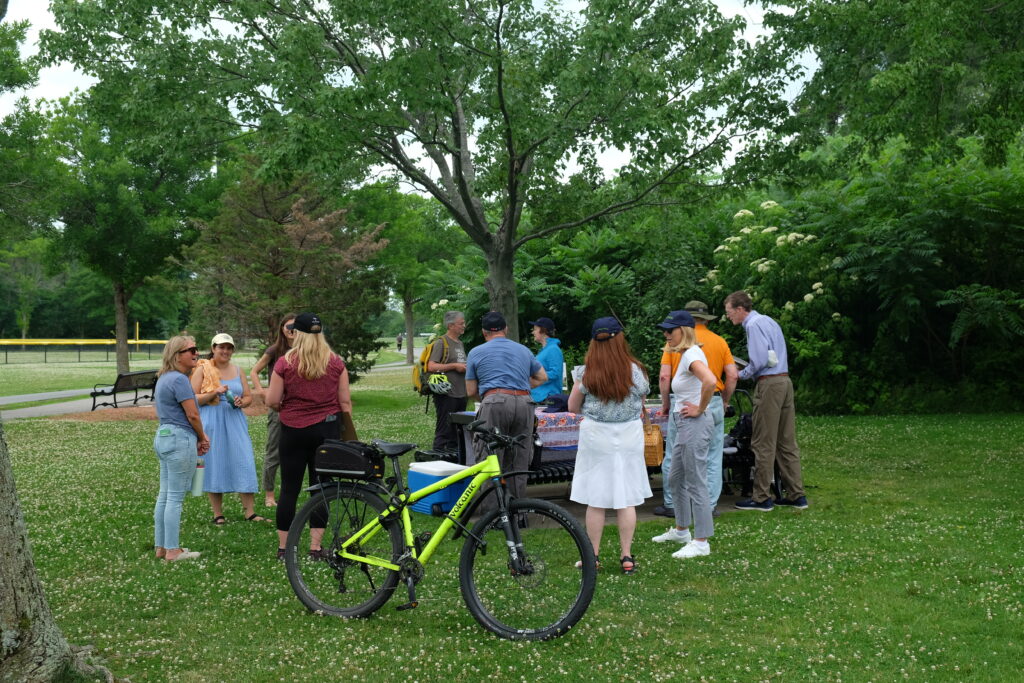
Following Carole Laible’s opening remarks, members of Biodiversity for a Livable Climate led the attendees on an informative tour of the Danehy Miyawaki Forest. Founded in 2013 by four activists deeply concerned with ecological degradation and climate disruption, this organization focuses on planetary regeneration through research, education, collaboration, and action to restore essential global biodiversity.
The tour covered the history, process, and specific details of the forest, explaining how densely planted native species work together to create a resilient and self-sustaining ecosystem. The guides emphasized the forest’s role in enhancing urban biodiversity, combating climate change, and providing a peaceful retreat for the community.
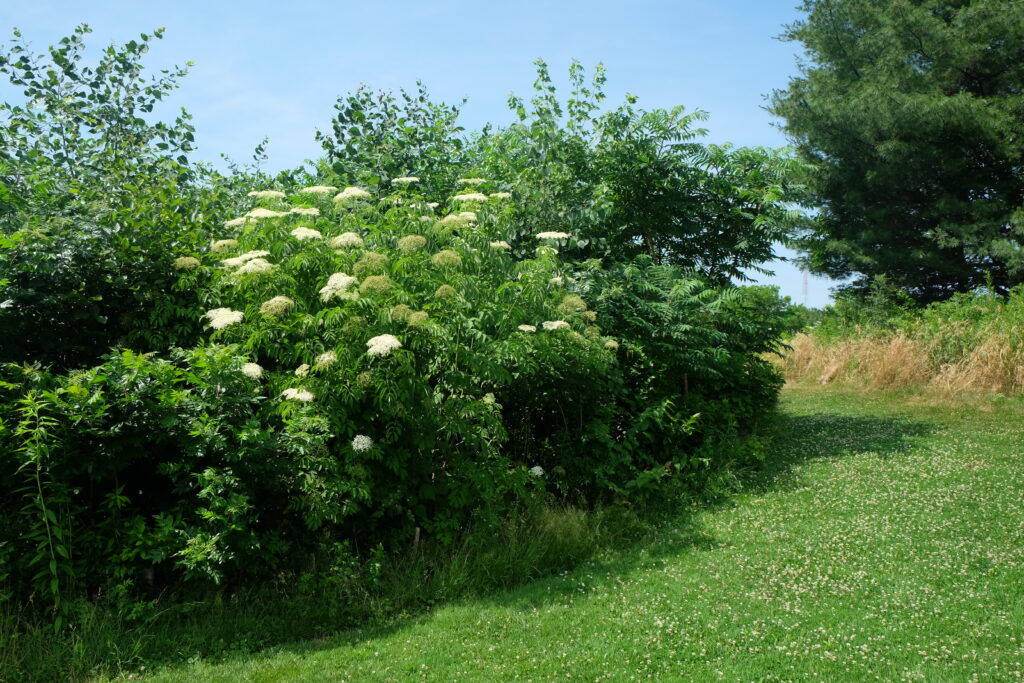
The Broader Impact of Tiny Forests
Tiny forests like the one in Danehy Park are part of a global movement transforming urban spaces. These forests, which have been planted worldwide, from Europe to Asia to the Americas, are known for their rapid growth and ecological benefits. They can grow ten times faster than conventional tree plantations, support more wildlife, and sequester more carbon. Furthermore, they help mitigate urban heat by lowering temperatures in areas dominated by pavement and concrete.
The tour was more than just a walk through the park; it was an educational experience that highlighted the importance of community involvement in environmental conservation. Participants left with a deeper understanding of the ecological significance of Miyawaki forests and a renewed commitment to supporting local biodiversity efforts. In Cambridge, the community’s enthusiastic response to the forest has been overwhelming. Plans for additional tiny forests are already in motion, showing a strong local desire to continue transforming urban spaces into green, vibrant ecosystems.
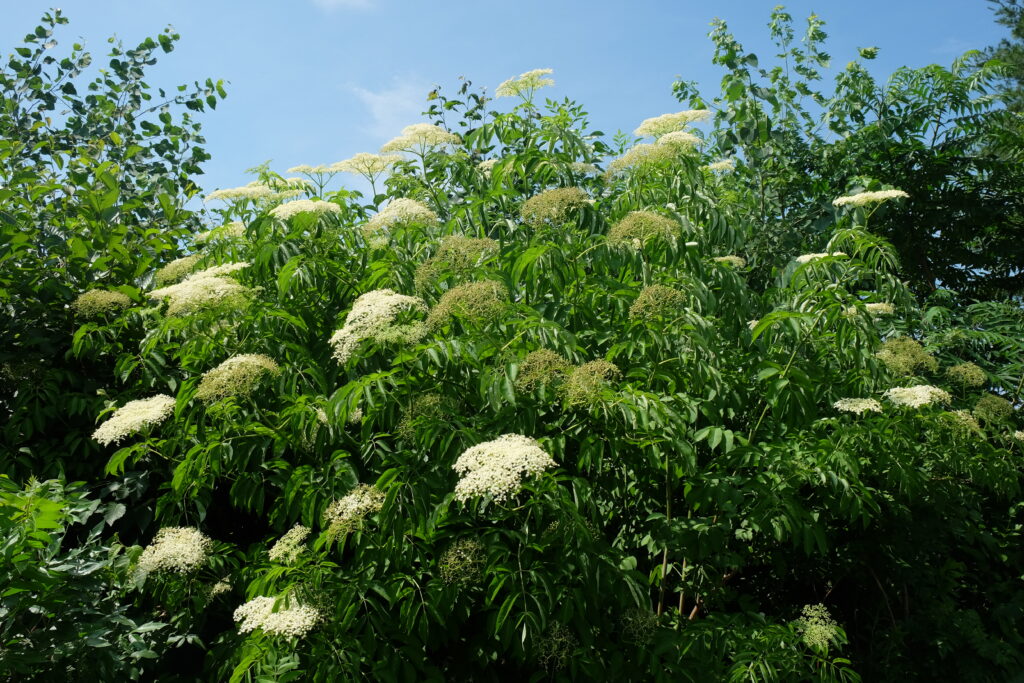
The Miyawaki Forest event at Danehy Park was a resounding success, bringing together nature lovers, environmentalists, and community members to celebrate the beauty and importance of urban green spaces. Through the efforts of organizations like Biodiversity for a Livable Climate, projects like these are paving the way for a more sustainable and biodiverse future in urban environments.
The Danehy Miyawaki Forest remains a testament to the power of rewilding and the potential for cities to harmonize with nature. Visit the forest at 99 Sherman St., Cambridge, MA, and experience the tranquility and biodiversity that this remarkable project has brought to the community.
